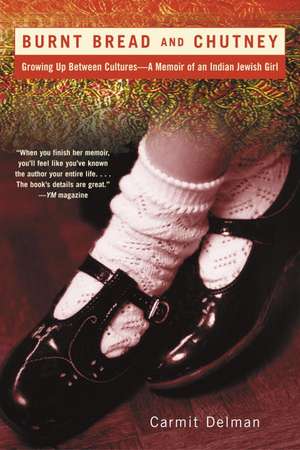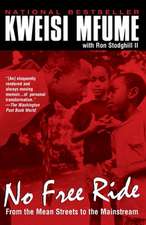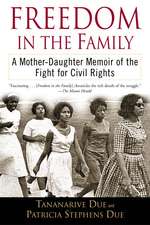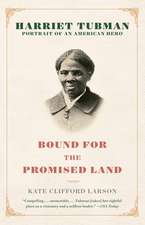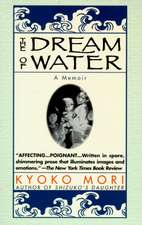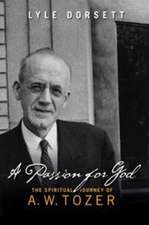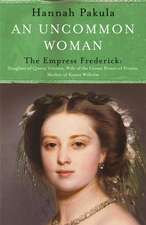Burnt Bread and Chutney: Growing Up Between Cultures - A Memoir of an Indian Jewish Childhood: Ballantine Reader's Circle
Autor Carmit Delmanen Limba Engleză Paperback – 31 aug 2003 – vârsta de la 14 până la 18 ani
In the politics of skin color, Carmit Delman is an ambassador from a world of which few are even aware. Her mother is a direct descendant of the Bene Israel, a tiny, ancient community of Jews thriving amidst the rich cultural tableau of Western India. Her father is American, a Jewish man of Eastern European descent. They met while working the land of a nascent Israeli state. Bound by love for each other and that newborn country, they hardly took notice of the interracial aspect of their union. But their daughter, Carmit, growing up in America, was well aware of her uncommon heritage.
Burnt Bread and Chutney is a remarkable synthesis of the universal and the exotic. Carmit Delman’s memories of the sometimes painful, sometimes pleasurable, often awkward moments of her adolescence juxtapose strikingly with mythic tales of her female ancestors living in the Indian-Jewish community. As rites and traditions, smells and textures intertwine, Carmit’s unique cultural identity evolves. It is a youth spent dancing on the roofs of bomb shelters on a kibbutz in Israel—and the knowledge of a heritage marked by arranged marriages and archaic rules and roles. It is coming of age in Jewish summer camps and at KISS concerts—and the inevitable combination of old and new: ancient customs and modern attitudes, Jewish, Indian, and American.
Carmit Delman’s journey through religious traditions, family tensions, and social tribulations to a healthy sense of wholeness and self is rendered with grace and an acute sense of depth. Burnt Bread and Chutney is a rich and innovative book that opens wide a previously unseen world.
Din seria Ballantine Reader's Circle
-
 Preț: 97.74 lei
Preț: 97.74 lei -
 Preț: 120.15 lei
Preț: 120.15 lei -
 Preț: 107.27 lei
Preț: 107.27 lei -
 Preț: 121.12 lei
Preț: 121.12 lei -
 Preț: 126.98 lei
Preț: 126.98 lei -
 Preț: 113.15 lei
Preț: 113.15 lei -
 Preț: 115.32 lei
Preț: 115.32 lei -
 Preț: 109.66 lei
Preț: 109.66 lei -
 Preț: 102.38 lei
Preț: 102.38 lei -
 Preț: 129.37 lei
Preț: 129.37 lei -
 Preț: 114.71 lei
Preț: 114.71 lei -
 Preț: 65.81 lei
Preț: 65.81 lei -
 Preț: 116.57 lei
Preț: 116.57 lei -
 Preț: 91.96 lei
Preț: 91.96 lei -
 Preț: 90.35 lei
Preț: 90.35 lei -
 Preț: 120.71 lei
Preț: 120.71 lei -
 Preț: 116.64 lei
Preț: 116.64 lei -
 Preț: 139.70 lei
Preț: 139.70 lei -
 Preț: 110.76 lei
Preț: 110.76 lei -
 Preț: 127.70 lei
Preț: 127.70 lei -
 Preț: 116.55 lei
Preț: 116.55 lei -
 Preț: 112.52 lei
Preț: 112.52 lei -
 Preț: 109.71 lei
Preț: 109.71 lei -
 Preț: 111.51 lei
Preț: 111.51 lei -
 Preț: 111.17 lei
Preț: 111.17 lei -
 Preț: 121.22 lei
Preț: 121.22 lei -
 Preț: 89.48 lei
Preț: 89.48 lei -
 Preț: 106.23 lei
Preț: 106.23 lei -
 Preț: 123.90 lei
Preț: 123.90 lei -
 Preț: 118.73 lei
Preț: 118.73 lei -
 Preț: 126.88 lei
Preț: 126.88 lei -
 Preț: 112.64 lei
Preț: 112.64 lei -
 Preț: 110.96 lei
Preț: 110.96 lei -
 Preț: 128.86 lei
Preț: 128.86 lei -
 Preț: 124.72 lei
Preț: 124.72 lei -
 Preț: 122.76 lei
Preț: 122.76 lei -
 Preț: 122.64 lei
Preț: 122.64 lei -
 Preț: 133.06 lei
Preț: 133.06 lei -
 Preț: 132.06 lei
Preț: 132.06 lei -
 Preț: 109.73 lei
Preț: 109.73 lei -
 Preț: 93.82 lei
Preț: 93.82 lei -
 Preț: 101.06 lei
Preț: 101.06 lei -
 Preț: 85.08 lei
Preț: 85.08 lei -
 Preț: 85.13 lei
Preț: 85.13 lei -
 Preț: 79.16 lei
Preț: 79.16 lei -
 Preț: 88.39 lei
Preț: 88.39 lei -
 Preț: 99.83 lei
Preț: 99.83 lei -
 Preț: 92.83 lei
Preț: 92.83 lei -
 Preț: 87.43 lei
Preț: 87.43 lei
Preț: 128.86 lei
Nou
Puncte Express: 193
Preț estimativ în valută:
24.66€ • 25.65$ • 20.36£
24.66€ • 25.65$ • 20.36£
Carte tipărită la comandă
Livrare economică 15-29 aprilie
Preluare comenzi: 021 569.72.76
Specificații
ISBN-13: 9780345445940
ISBN-10: 0345445945
Pagini: 304
Dimensiuni: 140 x 208 x 18 mm
Greutate: 0.39 kg
Ediția:Trade Pbk.
Editura: One World/Ballantine
Seria Ballantine Reader's Circle
ISBN-10: 0345445945
Pagini: 304
Dimensiuni: 140 x 208 x 18 mm
Greutate: 0.39 kg
Ediția:Trade Pbk.
Editura: One World/Ballantine
Seria Ballantine Reader's Circle
Notă biografică
Carmit Delman is descended from the Bene Israel, an ancient community of Indian Jews. American-born, she has lived in Ohio, New York, and Israel. After studying literature and anthropology at Brandeis University, she received an M.F.A. in creative writing from Emerson College. Currently she lives, teaches, and writes in Boston.
From the Hardcover edition.
From the Hardcover edition.
Extras
Portions of Pleasure
I was teacher for five years at Bene Israel Home for Destitutes and Orphans. There were twenty boys and twenty girls, between ages nine and eighteen, who had no one to look after them. We had for them a classroom and beds, and for every Passover and New Year, all the children used to get new clothes, white shirts and pants for the boys and white dresses for the girls. Some of the teachers used to cane their students, but not me. I loved them and told them Bible stories, so they were very good with me.
–Nana-bai’s diary, page 30
When the matchmaker first came for Nana-bai, he had a very reasonable proposition. As the late afternoon sun poured down, he seated himself, along with her mama and papa, in the shade by the house to discuss it. All three watched and waited quietly while Nana-bai brought out clean, damp hankies for them to refresh with. Then she served them tea and sweets and churda in small bowls. Usually there were servants to do such things. But this was a ceremony. And in these moments of serving the food and drink herself, Nana-bai’s mannerisms and efficiency were demonstrating whether she was, in fact, fit to be a wife and mother and daughter-in-law. The matchmaker watched her as a merchant. Her mama watched her, sharp-eyed for details of crumbs and spilled drops. Her papa watched her with a soft heart. But Nana-bai only kept her eyes downcast throughout, her simple braids tucked behind her ears. She was twenty-four years old, and already it was embarrassingly late for a matchmaker.
The matchmaker took a thoughtful sip of tea as Nana-bai retreated to the house. Like any wily businessman, he usually tried to dispose up front with any illusion that might threaten the deal at hand. As if to say, yes, these vegetables are somewhat bruised, but they have plenty of good meat on them still, and let’s face it, how much are you even offering me in return? He and his wife kept an account of the unmarried boys and girls in the community, biding their time and sizing up their bargaining points. Crossed eyes. Albino coloring. Stutterer. Elephantiasis of the legs. Strange birthmark on the face. If in meeting with any other family, he was presented with such a girl as Nana-bai was, he would have said immediately, “Let us speak plainly. She is not a beauty. And she is very dark-skinned. And she is old.” Then knowing the parents were anxiously waiting for him to continue, he would remain silent a few moments too many. For dramatic effect, he might also lean back in his seat and stretch a bit. A small man with weak arms and an unusually large stomach, when the matchmaker walked through the streets, he knew very well he looked awkward, even ugly. But in discussing brides and dowries at the very center of a transaction, he was exactly in his element, and appeared, he imagined, to be powerful and calculating.
But now he was not dealing with just any family. And as papa cleared his throat, the matchmaker saw that already he had been silent too long. He straightened up in his seat just a bit. “Sir. Your daughter is blessed to come from such a respected family. Everyone in this city admires you, sir, for your prosperity in the printing press, for your generosity towards the synagogue, for taking so many orphans from the Bene Israel community to be your own adopted children. From all of my heart, I believe she will be a lucky bride for the right man.” He looked around him at the sprawling house, and at their automobile–yes, an automobile, when even in Britain such a thing was a rarity.
Mama saw with disgust the way his eyes roved over their richness. She cringed at his sniveling mannerisms and greediness. But the matchmaker was required, to make a marriage sound. There had to be ceremony in everything, of course, but especially for something as serious as this. Mama had heard of two Jews from somewhere in Pune who married without a formal matching. It had been decided upon–if such a thing was even possible–by just the young man and woman. There had been no matchmaker. The parents themselves were barely involved. Good G-d, that kind of thing was not even really a marriage. The entire family was shamed because of it. And mama only shook her head sadly when she heard of this, because she knew no one from a good family would ever marry the children from that union.
“What is your proposal, sir?” papa said, not rude but pointed.
“There is a man who has come here just recently from the Jewish community in Cochin. His name is Moses. He oversees the school for orphans where your daughter teaches, and he himself has asked about her. Yes, what joy!” The matchmaker looked intently at mama and papa, as if to share their joy, and then upon seeing that they sat stone-faced, to try and prompt it.
“Kai-bug! But he is from another city, another community,” mama said softly.
“Now, now,” the matchmaker answered automatically, shaking his head and holding up his hands as if to let them dry. “I know you must be thinking, what can we know about this stranger? What do we know about his background? But he is a good man and educated. There are no cases of deformity or insanity in his family. He himself has told me how much he respects your daughter’s cleverness with writing and books. And,” he added, trying to be delicate, “he is willing to, ahem . . . overlook any shortcomings of maturity or otherwise.” His fingers tapped one another nervously, allowing mama and papa to think.
“Are you willing to stand by this man, this Moses’ reputation?” papa asked severely.
“With all due respect, sir,” the matchmaker bowed his head slightly, “have I ever failed you before? Of all your fourteen children,” he continued grandly, “I have matched ten of them. Ten. Look at your son Samuel. And your eldest twins. Look at the youngest girl you took in, Rebecca, now married to Solly five years because of me. And today they all prosper enough to have their own homes, and you have many beautiful grandsons and granddaughters from them. Think of it.” Having delivered the words he knew were his proof, the matchmaker discreetly turned away. As he watched the servant’s children playing nearby, he allowed the parents to consult quietly together.
“This man seems to have a genuine interest in her,” papa said.
“Haa. And we cannot be too choosy now,” mama agreed.
“True. She is twenty-four already.”
“Yes,” mama said, warming to the idea. “Yes, we are very fortunate in the end, that this Moses arrived from Cochin. Finally our daughter’s cleverness has come to something.”
When mama and papa informed Nana-bai of the engagement, she was surprised and pleased to learn that the man in question was Moses, the man from Cochin, whom she had often seen looking at her in the orphan’s school. Now, when Nana-bai caught a glimpse of Moses, she blushed and modestly hid her face behind a corner of her sari. Certainly, she decided to herself, flustered, those bold eyes could never have come from here in Bombay. But when she prepared herself for the school day, she was more careful that her braids were tied smoothly and free of bumps. As she spoke to the orphans, held their small hands, she was especially gentle, and more aware than ever of the warmth and softness of their skin, the fragility of their bodies. Even at night, while drifting to sleep, she wondered: What would he say to me now? What would he do to me now? Wouldn’t he enjoy if I prepared such a curry for him as I made tonight?
One day during lessons, the assistant who worked for Moses knocked on the door and came into Nana-bai’s classroom with a letter for her. It was from Moses. “He asked that I give this to you and wait for a response.”
“Kai-bug!” As her students read quietly to themselves, Nana-bai took her note to a corner and slowly tore the rice paper open. Inside it said just this, in neat print: “Are you agreed?” Such a pointless gesture, to ask this question, if she was agreed to their engagement. In fact, she had no right to agree or disagree to it at all. But still, he had asked it, and this made her catch her breath. She folded the paper up and put it into her handkerchief pocket, to take home and save, pressed tightly between the pages of a book. Then she took a new sheet of paper and wrote on it in round script letters: “Yes.” That was their exchange. e
Just a few days after the engagement was officially announced to the community, Moses was denounced as a drunk. A messenger boy had discovered him in his home, asleep over his books and papers, with an empty cask of wine at his desk. Soon everyone knew about it. Old men gossiped about him at the synagogue. Wives shook their heads over him as they fed their babies together. Even the Bene Israel newspaper ran a barbed editorial declaring that certain educators in the community seemed to have a thirst for far more than knowledge.
“The marriage is off,” papa told Nana-bai. “It is because of the drinking.”
“What?” she cried out in disbelief. “Because of the drinking? What if he was just tired? Or reading late into the night? What if it was just one drink? Is there something wrong with that?”
“I am surprised you even ask this,” said papa stiffly. “That is unacceptable.”
“I promise you, papa,” Nana-bai cut in. “I am strong and I will teach him to never drink again.”
“Maybe she is right.” Mama proposed this now, under her breath. “We worried no one would marry her before. But now, after this–a broken engagement–her name will be ruined forever. She will be tainted. She will certainly never marry now.”
“I have worked hard my whole life,” he said proudly. “And I should hope the good name I have built for my family will continue to stand as a strong reference behind her–no matter what. In any case,” he added, “we cannot bring on such a shame to our family. We cannot.”
Mama looked at him worriedly, but then she nodded her head and closed her eyes in resignation. Seeing this, Nana-bai begged him again to reconsider.
“Nai. It is already done,” he told her with finality. “I have asked the matchmaker to end it.”
From the Hardcover edition.
I was teacher for five years at Bene Israel Home for Destitutes and Orphans. There were twenty boys and twenty girls, between ages nine and eighteen, who had no one to look after them. We had for them a classroom and beds, and for every Passover and New Year, all the children used to get new clothes, white shirts and pants for the boys and white dresses for the girls. Some of the teachers used to cane their students, but not me. I loved them and told them Bible stories, so they were very good with me.
–Nana-bai’s diary, page 30
When the matchmaker first came for Nana-bai, he had a very reasonable proposition. As the late afternoon sun poured down, he seated himself, along with her mama and papa, in the shade by the house to discuss it. All three watched and waited quietly while Nana-bai brought out clean, damp hankies for them to refresh with. Then she served them tea and sweets and churda in small bowls. Usually there were servants to do such things. But this was a ceremony. And in these moments of serving the food and drink herself, Nana-bai’s mannerisms and efficiency were demonstrating whether she was, in fact, fit to be a wife and mother and daughter-in-law. The matchmaker watched her as a merchant. Her mama watched her, sharp-eyed for details of crumbs and spilled drops. Her papa watched her with a soft heart. But Nana-bai only kept her eyes downcast throughout, her simple braids tucked behind her ears. She was twenty-four years old, and already it was embarrassingly late for a matchmaker.
The matchmaker took a thoughtful sip of tea as Nana-bai retreated to the house. Like any wily businessman, he usually tried to dispose up front with any illusion that might threaten the deal at hand. As if to say, yes, these vegetables are somewhat bruised, but they have plenty of good meat on them still, and let’s face it, how much are you even offering me in return? He and his wife kept an account of the unmarried boys and girls in the community, biding their time and sizing up their bargaining points. Crossed eyes. Albino coloring. Stutterer. Elephantiasis of the legs. Strange birthmark on the face. If in meeting with any other family, he was presented with such a girl as Nana-bai was, he would have said immediately, “Let us speak plainly. She is not a beauty. And she is very dark-skinned. And she is old.” Then knowing the parents were anxiously waiting for him to continue, he would remain silent a few moments too many. For dramatic effect, he might also lean back in his seat and stretch a bit. A small man with weak arms and an unusually large stomach, when the matchmaker walked through the streets, he knew very well he looked awkward, even ugly. But in discussing brides and dowries at the very center of a transaction, he was exactly in his element, and appeared, he imagined, to be powerful and calculating.
But now he was not dealing with just any family. And as papa cleared his throat, the matchmaker saw that already he had been silent too long. He straightened up in his seat just a bit. “Sir. Your daughter is blessed to come from such a respected family. Everyone in this city admires you, sir, for your prosperity in the printing press, for your generosity towards the synagogue, for taking so many orphans from the Bene Israel community to be your own adopted children. From all of my heart, I believe she will be a lucky bride for the right man.” He looked around him at the sprawling house, and at their automobile–yes, an automobile, when even in Britain such a thing was a rarity.
Mama saw with disgust the way his eyes roved over their richness. She cringed at his sniveling mannerisms and greediness. But the matchmaker was required, to make a marriage sound. There had to be ceremony in everything, of course, but especially for something as serious as this. Mama had heard of two Jews from somewhere in Pune who married without a formal matching. It had been decided upon–if such a thing was even possible–by just the young man and woman. There had been no matchmaker. The parents themselves were barely involved. Good G-d, that kind of thing was not even really a marriage. The entire family was shamed because of it. And mama only shook her head sadly when she heard of this, because she knew no one from a good family would ever marry the children from that union.
“What is your proposal, sir?” papa said, not rude but pointed.
“There is a man who has come here just recently from the Jewish community in Cochin. His name is Moses. He oversees the school for orphans where your daughter teaches, and he himself has asked about her. Yes, what joy!” The matchmaker looked intently at mama and papa, as if to share their joy, and then upon seeing that they sat stone-faced, to try and prompt it.
“Kai-bug! But he is from another city, another community,” mama said softly.
“Now, now,” the matchmaker answered automatically, shaking his head and holding up his hands as if to let them dry. “I know you must be thinking, what can we know about this stranger? What do we know about his background? But he is a good man and educated. There are no cases of deformity or insanity in his family. He himself has told me how much he respects your daughter’s cleverness with writing and books. And,” he added, trying to be delicate, “he is willing to, ahem . . . overlook any shortcomings of maturity or otherwise.” His fingers tapped one another nervously, allowing mama and papa to think.
“Are you willing to stand by this man, this Moses’ reputation?” papa asked severely.
“With all due respect, sir,” the matchmaker bowed his head slightly, “have I ever failed you before? Of all your fourteen children,” he continued grandly, “I have matched ten of them. Ten. Look at your son Samuel. And your eldest twins. Look at the youngest girl you took in, Rebecca, now married to Solly five years because of me. And today they all prosper enough to have their own homes, and you have many beautiful grandsons and granddaughters from them. Think of it.” Having delivered the words he knew were his proof, the matchmaker discreetly turned away. As he watched the servant’s children playing nearby, he allowed the parents to consult quietly together.
“This man seems to have a genuine interest in her,” papa said.
“Haa. And we cannot be too choosy now,” mama agreed.
“True. She is twenty-four already.”
“Yes,” mama said, warming to the idea. “Yes, we are very fortunate in the end, that this Moses arrived from Cochin. Finally our daughter’s cleverness has come to something.”
When mama and papa informed Nana-bai of the engagement, she was surprised and pleased to learn that the man in question was Moses, the man from Cochin, whom she had often seen looking at her in the orphan’s school. Now, when Nana-bai caught a glimpse of Moses, she blushed and modestly hid her face behind a corner of her sari. Certainly, she decided to herself, flustered, those bold eyes could never have come from here in Bombay. But when she prepared herself for the school day, she was more careful that her braids were tied smoothly and free of bumps. As she spoke to the orphans, held their small hands, she was especially gentle, and more aware than ever of the warmth and softness of their skin, the fragility of their bodies. Even at night, while drifting to sleep, she wondered: What would he say to me now? What would he do to me now? Wouldn’t he enjoy if I prepared such a curry for him as I made tonight?
One day during lessons, the assistant who worked for Moses knocked on the door and came into Nana-bai’s classroom with a letter for her. It was from Moses. “He asked that I give this to you and wait for a response.”
“Kai-bug!” As her students read quietly to themselves, Nana-bai took her note to a corner and slowly tore the rice paper open. Inside it said just this, in neat print: “Are you agreed?” Such a pointless gesture, to ask this question, if she was agreed to their engagement. In fact, she had no right to agree or disagree to it at all. But still, he had asked it, and this made her catch her breath. She folded the paper up and put it into her handkerchief pocket, to take home and save, pressed tightly between the pages of a book. Then she took a new sheet of paper and wrote on it in round script letters: “Yes.” That was their exchange. e
Just a few days after the engagement was officially announced to the community, Moses was denounced as a drunk. A messenger boy had discovered him in his home, asleep over his books and papers, with an empty cask of wine at his desk. Soon everyone knew about it. Old men gossiped about him at the synagogue. Wives shook their heads over him as they fed their babies together. Even the Bene Israel newspaper ran a barbed editorial declaring that certain educators in the community seemed to have a thirst for far more than knowledge.
“The marriage is off,” papa told Nana-bai. “It is because of the drinking.”
“What?” she cried out in disbelief. “Because of the drinking? What if he was just tired? Or reading late into the night? What if it was just one drink? Is there something wrong with that?”
“I am surprised you even ask this,” said papa stiffly. “That is unacceptable.”
“I promise you, papa,” Nana-bai cut in. “I am strong and I will teach him to never drink again.”
“Maybe she is right.” Mama proposed this now, under her breath. “We worried no one would marry her before. But now, after this–a broken engagement–her name will be ruined forever. She will be tainted. She will certainly never marry now.”
“I have worked hard my whole life,” he said proudly. “And I should hope the good name I have built for my family will continue to stand as a strong reference behind her–no matter what. In any case,” he added, “we cannot bring on such a shame to our family. We cannot.”
Mama looked at him worriedly, but then she nodded her head and closed her eyes in resignation. Seeing this, Nana-bai begged him again to reconsider.
“Nai. It is already done,” he told her with finality. “I have asked the matchmaker to end it.”
From the Hardcover edition.
